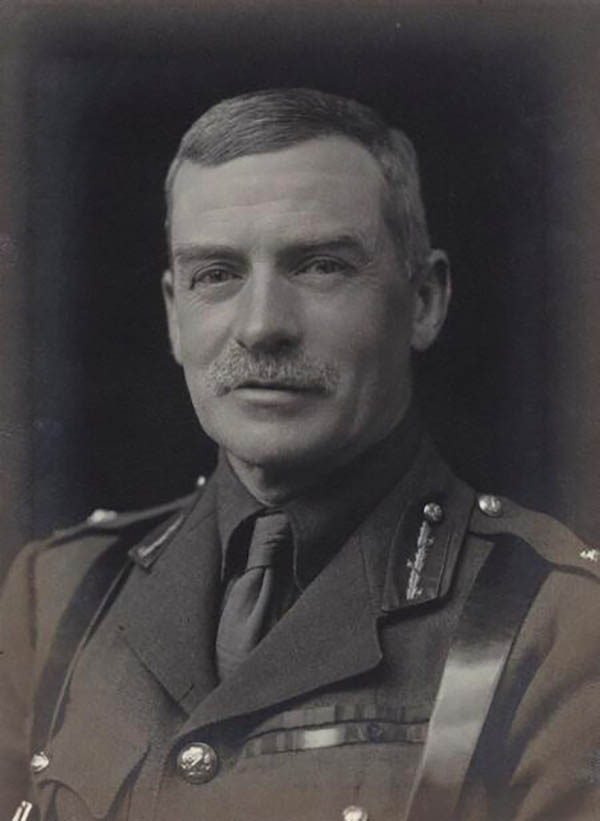
This copy is copyright protected.
Copyright © 2025 Geographicus Rare Antique Maps

Henry Rodolph Davies (September 21, 1865 - January 4, 1950) was a British military officer, rising to the rank of major general, who was a brigade and division commander in the First World War. Born in Windsor, Berkshire, Davies' father had also been an army officer (reaching lieutenant general) and his grandfather had been an admiral in the Royal Navy; his brother Francis was also a division commander in the First World War. H. R. Davies attended Eton College, where he studied Oriental Languages among other topics, which were useful in his later travels as a military officer. He attended the Royal Military College at Sandhurst and then was sent to Burma in 1887, and would remain in East Asia for more than a decade (in the process marrying a Burmese woman, with whom he had four children). In 1893, he joined a survey to map the mountain passes between Burma and China, then continued on to Yunnan to survey a potential railway route from Burma. Though consisting of several distinct trips (interrupted by fighting in the Tirah campaign 1897 - 1898, and the Boxer Uprising in 1900), Davies spent most of the period between 1893 and 1900 exploring and surveying Yunnan and environs. The resulting 1906 map was by far the best European map of Yunnan to date, and in 1909 Davies' published a book (Yün-nan the link between India and the Yangtze) recounting his travels and the railway plan. Davies' description of the 'tribes' of Yunnan was highly influential on later ethnographers, to the extent that it was labelled the 'Davies model' of 'Davies taxonomy' (see Thomas Mullaney, Coming to Terms with the Nation: Ethnic Classification in Modern China, University of California Press, 2011). After leaving Asia, Davies served in the Second Boer War and returned to Britain to take command of a battalion of the Oxfordshire and Buckinghamshire Light Infantry. Davies served with distinction during the First World War, taking command of the 11th (Northern) Division in 1917. He was wounded during the Hundred Days Offensive near the end of the war, but quickly returned to action and was in the field when the armistice took effect on November 11, 1918. After the war, Davies commanded a division in the Territorial Army for several years before retiring.
Copyright © 2025 Geographicus Rare Antique Maps | Geographicus Rare Antique Maps

This copy is copyright protected.
Copyright © 2025 Geographicus Rare Antique Maps